Lenasia South, South Africa – Seventy-year-old Ruth Mckina sat quietly along with about a dozen other patients in a post-op room in the Lenasia South Community Health Centre, about 25 miles south of Johannesburg.
Mckina had arrived just after 7 a.m. on a Saturday morning at the government-funded health center, located in the former racially segregated township of Lenasia South. She was one of about 15 patients in line that morning for cataract removal surgery as part of the clinic’s Cataract Camp, which offers free eye screenings, basic eye care services and surgical procedures.
Moments after Dr. Naseer Ally had removed a cataract from her right eye, Mckina was beaming, her right eye covered with a large thick pad of gauze.
“I was nervous,” Mckina said. “I thought it would be a difficult thing, but it actually went quite well. I am thankful. I am really thankful.”
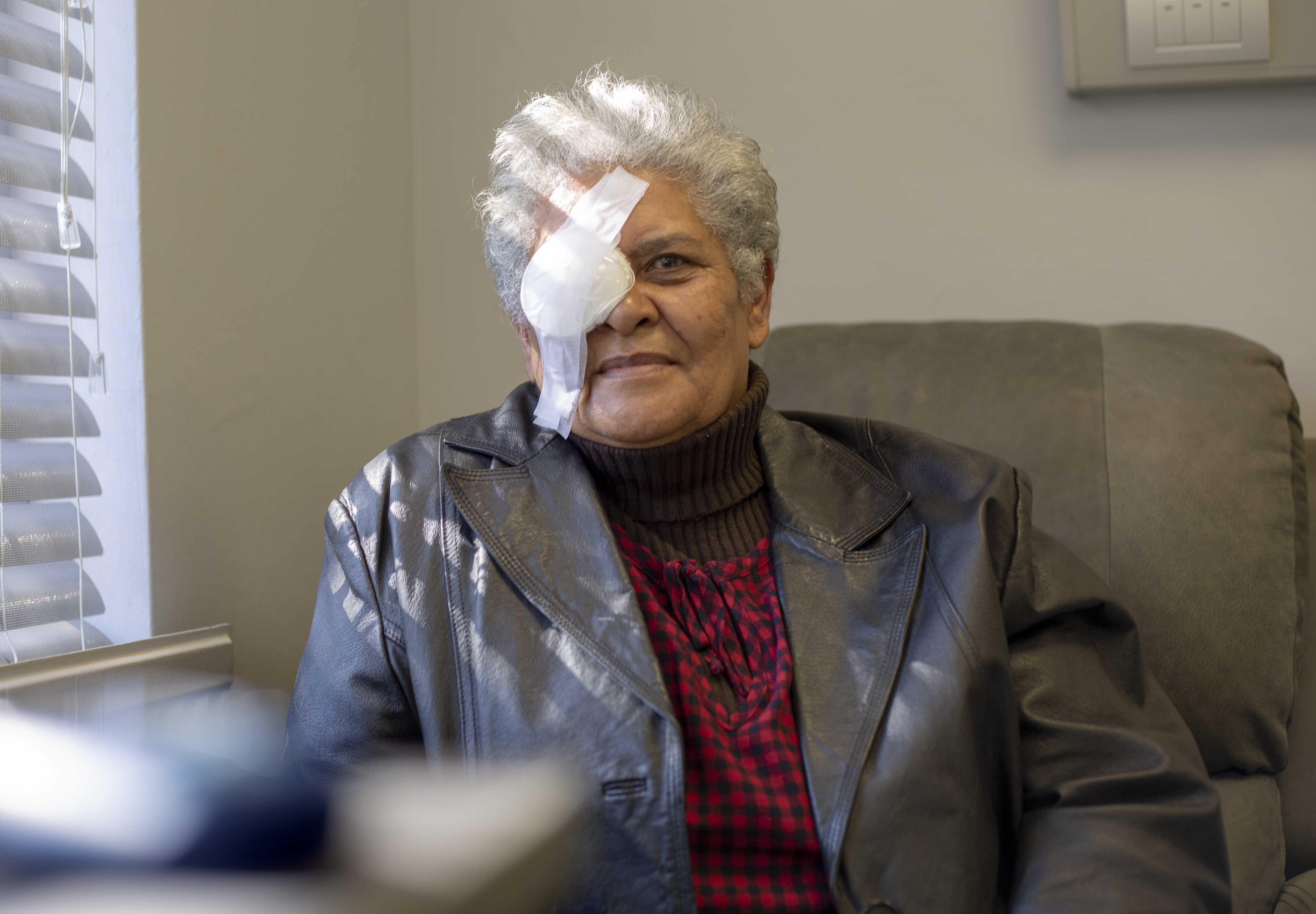
For seven years, Mckina had been struggling with depleting sight, increasingly unable to read signs, see the road or watch television. After a basic eye exam at the clinic, she learned she had a densely developed cataract.
McKina’s cataract, like many others, occurred due to clouding of the normally clear lens in the eye, a condition commonly seen in aging adults.
Ally, the doctor who performed Mckina’s cataract surgery, is part of a team of doctors and nurses at the clinic who volunteer their time for several hours on Saturdays, prepping patients and then performing cataract surgeries.
“It’s a silent disease,” said Ally, who performs the surgeries to keep his skills sharp while waiting for the end of a hiring freeze in the state health care sector. “You don’t know you’re going blind, so if you live in a rural area without proper eye care services, no one is going to pick it up. It’s only when you notice your vision going down, it is too late.”
Ally and his team, including physicians Aamina Hajee and Ismail Dindar, also handle emergency cases on the weekends.
“We see many extreme cases, gunshots to the eye, stabs to the eye and a lot of domestic violence,” said Hajee. “It’s almost dreadful to be working on the weekends.
Yet weekend work is the norm at the Lenasia clinic where a constant backlog of patients has forced the doctors to extend the number of days they offer surgeries as part of the Cataract Camp. They are now booking surgeries for the year 2020.
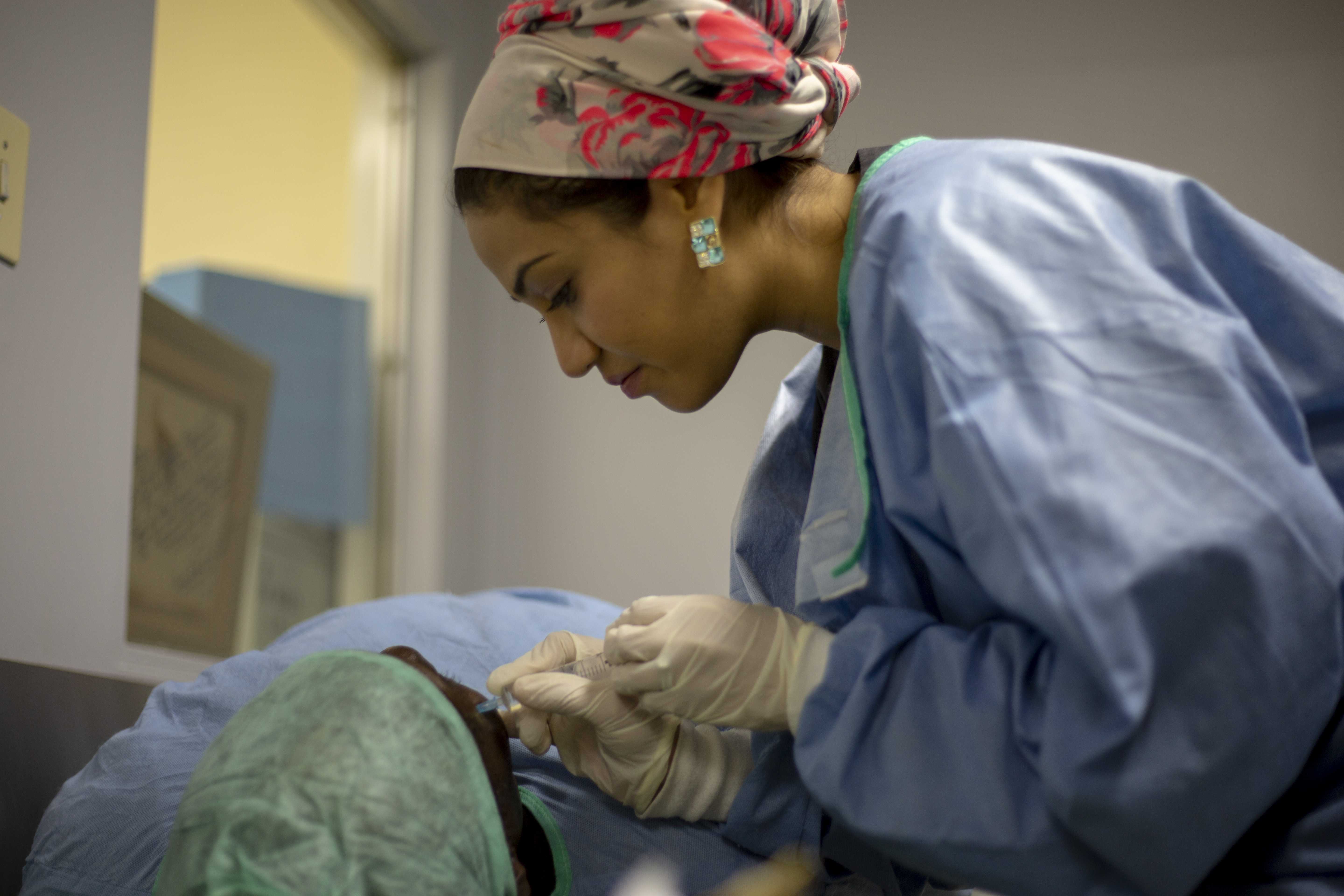
Including cataract surgeries and emergency procedures, medical staff at the center’s eye clinic treat weekly about 200 patients.
“We have only a few centers treating a large majority of the population,” Ally said. “Most are not on medical aid and can only come to state services. So you have most of the population coming where the least amount of doctors are.”
According to a 2015 World Health Organization (WHO) report, about 80 percent of South Africa’s 54 million citizens use government-run hospitals and clinics, obtaining services through a process roughly equivalent to the U.S. Medicare and Medicaid system. Government health care facilities strain under a burden of inadequate resources and serve a population of primarily low-income earners. For those who can afford high premiums and high quality care, private sector health services care can be obtained by purchasing medical aid, or health insurance plans from health insurance companies.
Although section 27 of the Bill of Rights in the South African Constitution guarantees health care for all, there is an imbalance in both access to and provision of healthcare services based largely on economic class and racial inequities. The South African government recently revised portions of its universal health care system and approved a National Health Insurance (NHI) system to finance and provide free and comprehensive health services to its people.
This is partly why Ally chose to focus his work away from the private sector and more on research for use in the public sphere. His goal for his clinical research is to minimize the economic burden that is put on patients to visit doctors, as well as the best ways for hospitals to utilize doctors’ time.
“The problem with ophthalmology and eye care is that no one dies,” Ally said. “It isn’t a fatal disease, and if no one dies, sometimes with the government, it isn’t a priority.”
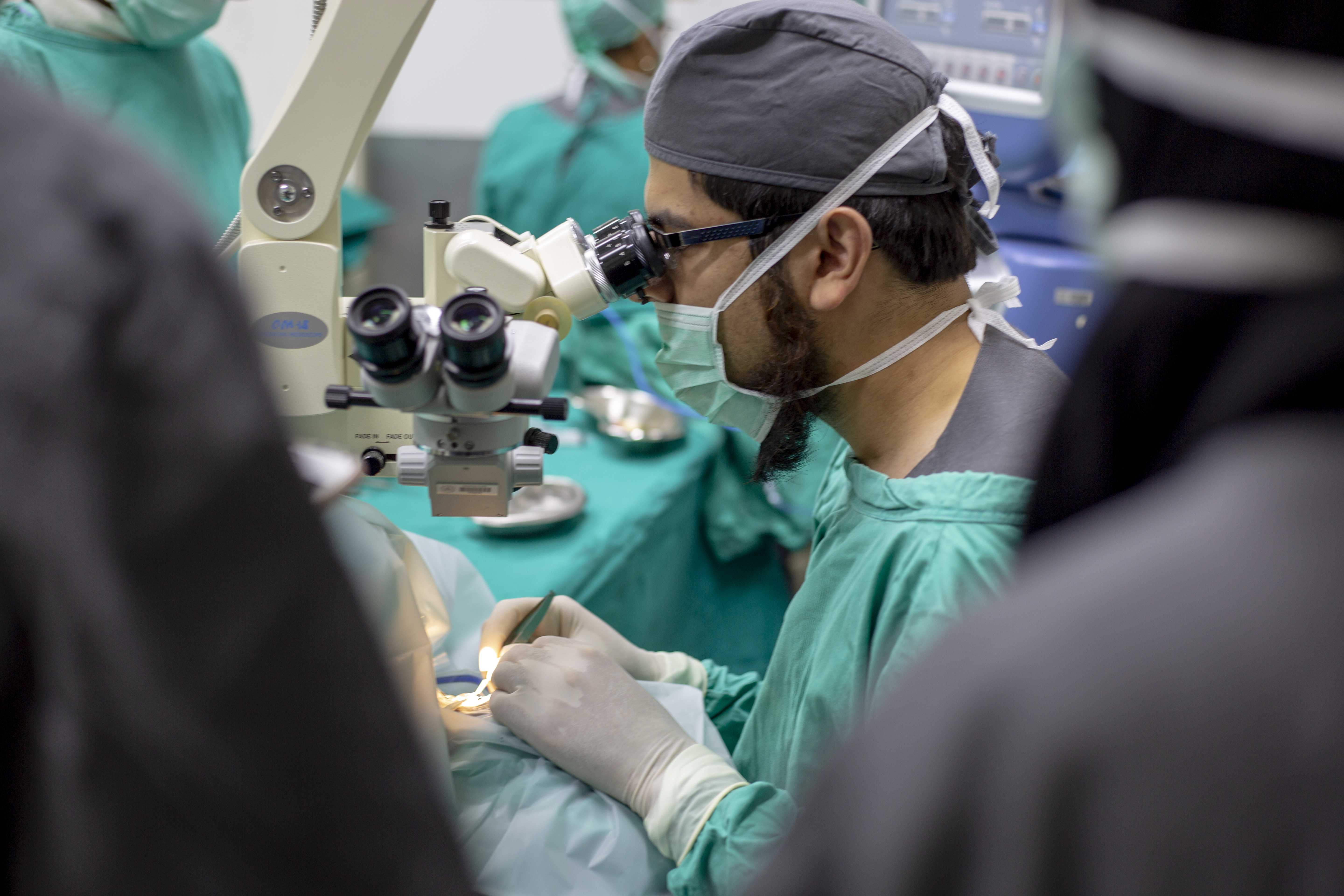
Corporate sponsors, including South African clothing retailer Truworths and eye-health non-profit Orbis, provide supplementary resources, from lenses to slit lamps to scrubs, at the eye clinic in Lenasia South, Hajee said. Even at that, the lenses donated to the clinic for cataract surgeries are monofocal rather than multifocal lenses.
“We never have multifocal because they are too expensive,” said Ally, noting that patients would benefit from the multifocal lenses that are far more readily available in the U.S.
Corporate sponsorships are a part of South Africa’s larger Global Action Plan, which works towards the prevention of avoidable blindness and visual impairment. This plan replaced the Vision 20/20 initiative that hoped to eliminate treatable blindness by the year 2020, an action that Ally does not see as feasible.
“I don’t see a solution for this in the immediate future,” Ally said. “I think it will take a lot of resources and a lot of world power from the government. They need to develop these programs.”
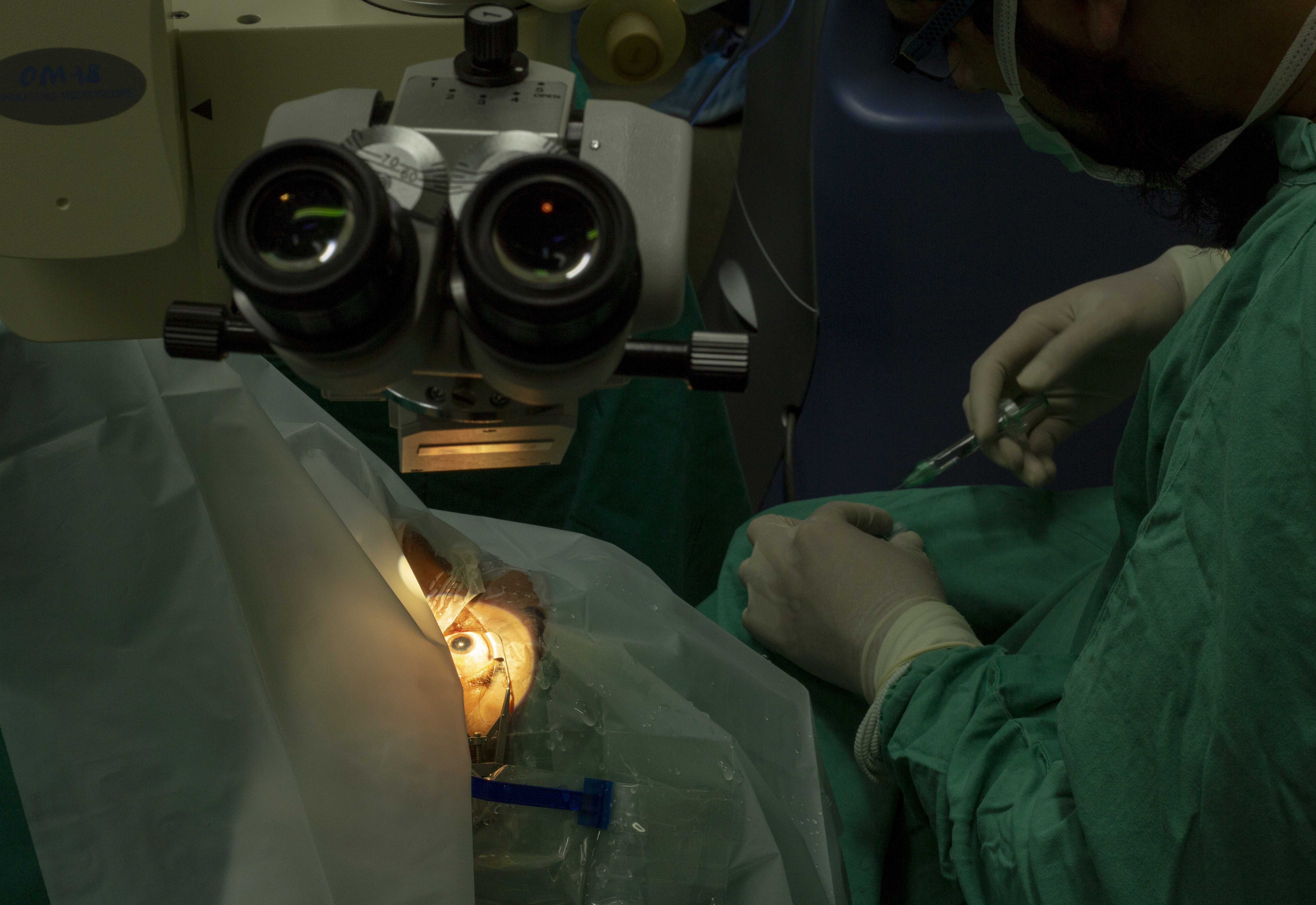
Having already had her first cataract removed one year ago, 65-year-old Sarah Chenene was among the group of patients at the Lenasia South clinic who was pleased with the public health care she received there.
“I am very happy,” she said. “I think [public health care] is working very well here.”
That is good news to Hajee.
“Being happy with health care is not a norm in South Africa,” Hajee said. “Seeing patients that have been blind and now can see again, and it’s through the government so they do not have to pay, that is what inspired me to practice in this field.”





















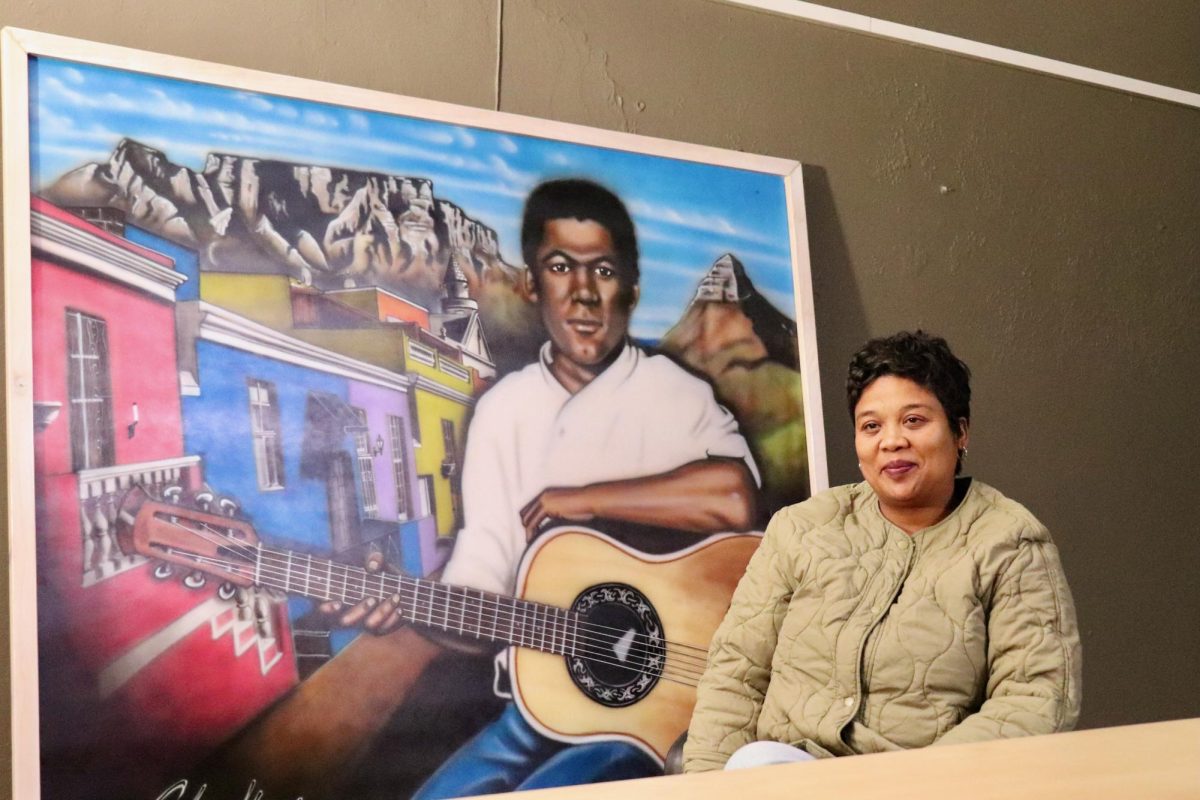
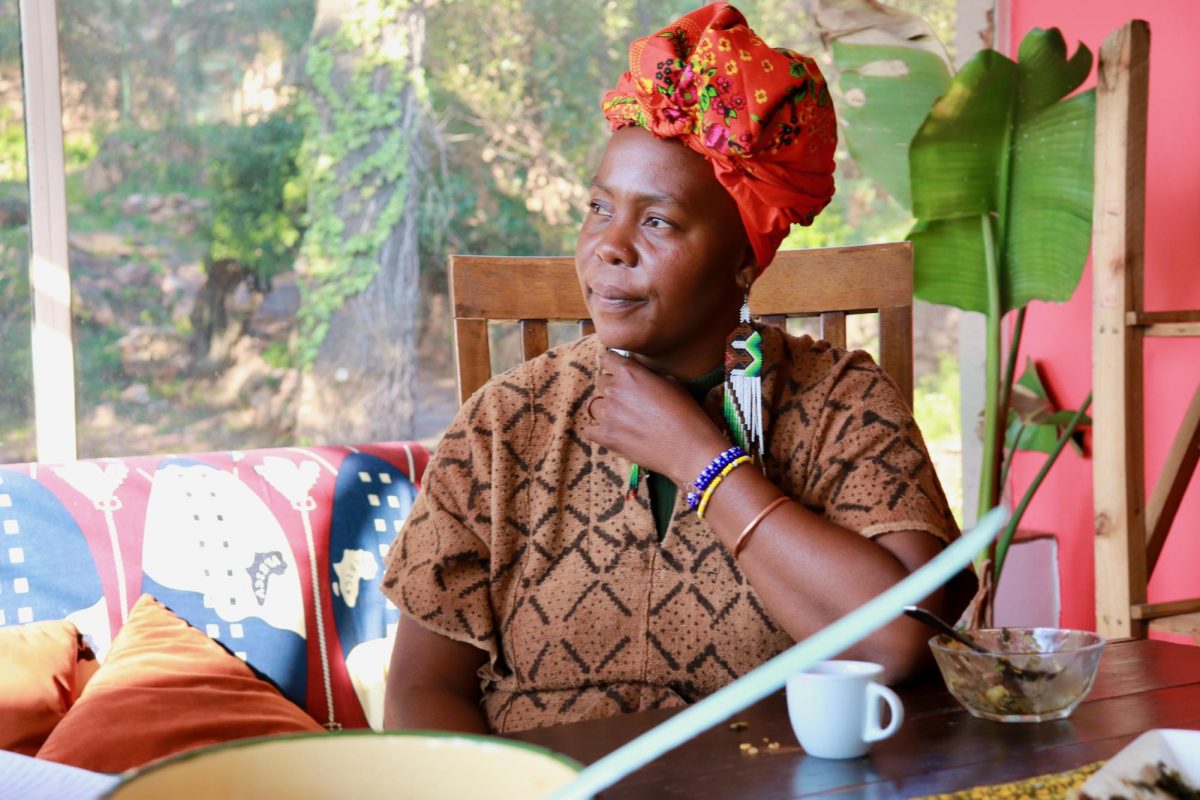
















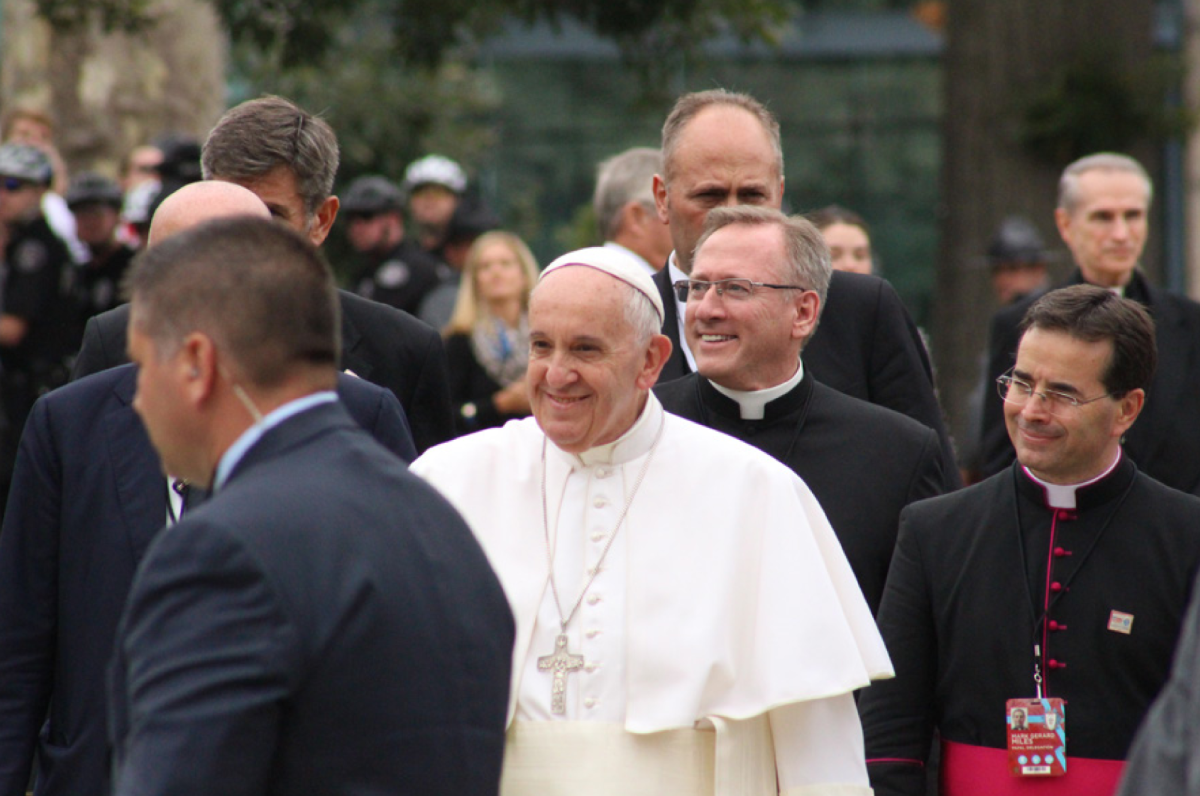
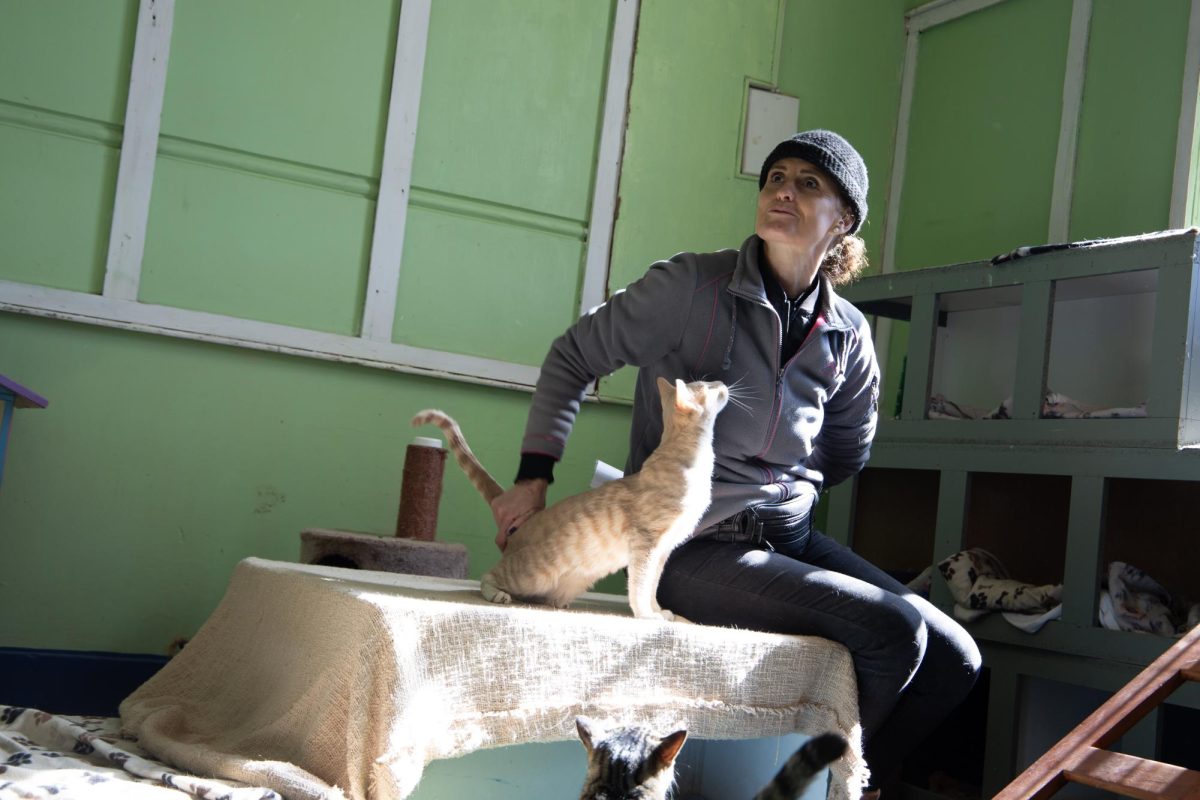
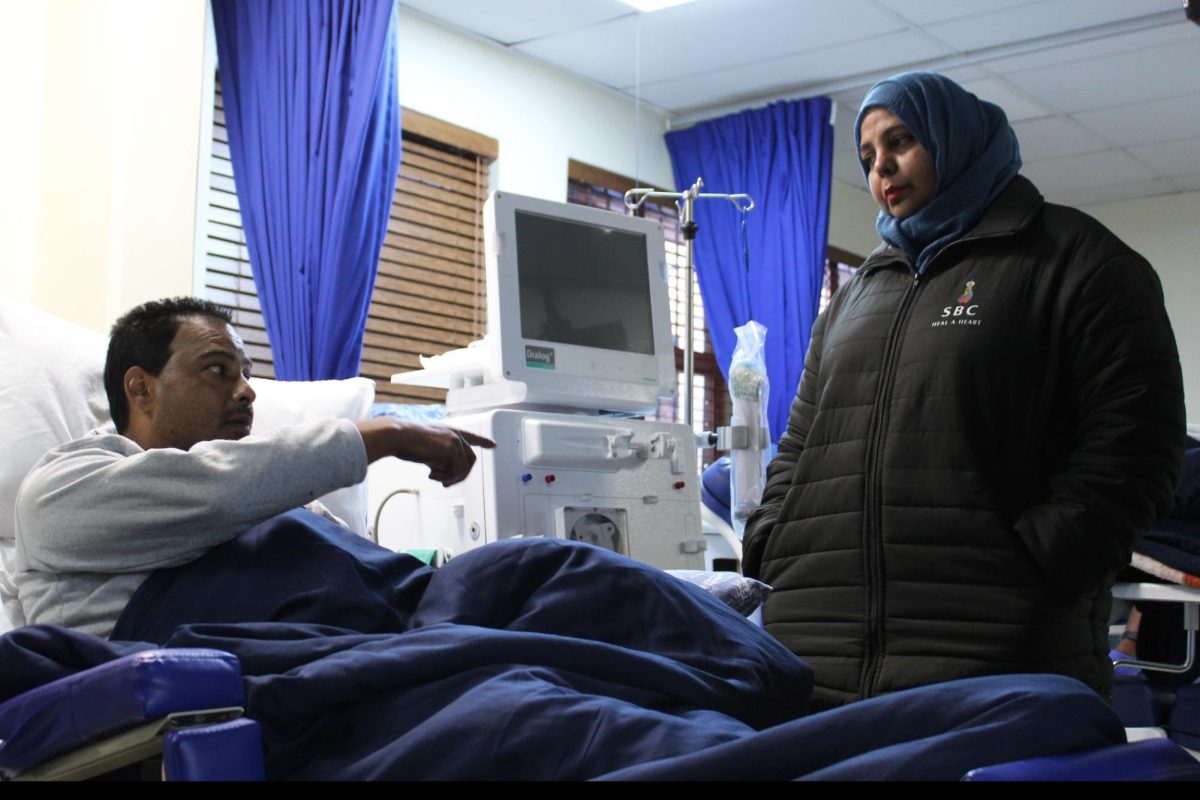
AJ • Jul 30, 2018 at 10:37 pm
You’ve shed a light on how fortunate we are in the United States to have access to healthcare. The impact that these doctors make in third world countries deserves recognition . Thank you for sharing your journey.